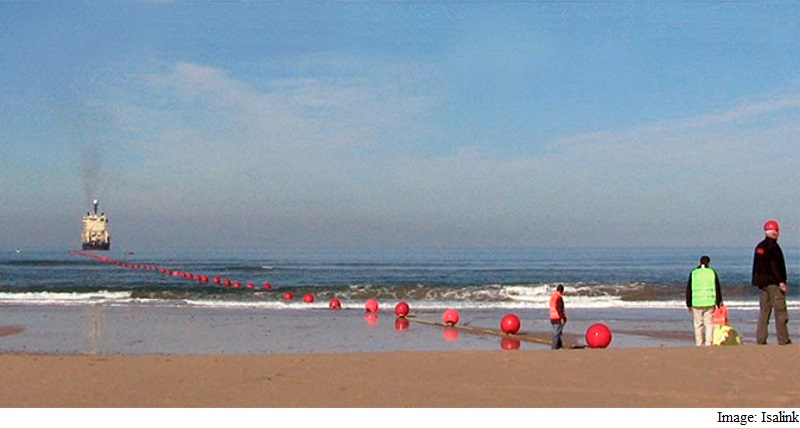- Home
- Internet
- Internet News
- Google, Facebook Considering Brazil's Spy Proof Link to Europe
Google, Facebook Considering Brazil's Spy-Proof Link to Europe

The cable is expected to be operational in late 2017 and "should be funded by the commercialization of its traffic," Figueiredo said in an interview Tuesday in Barcelona at the Mobile World Congress. State-owned Telecomunicacoes Brasileiras, known as Telebras, "is already marketing the cable to the European Union and companies such as Google and Facebook, which have shown interest in it."
Brazil announced the construction of the link last year as part of its push to increase phone and Internet security in the aftermath of the 2013 revelations that the National Security Agency had monitored President Dilma Rousseff's communications. While a main destination for Brazil's Internet traffic is the United States, linking to Europe makes sense because there is growing communication between South America and Europe, Figueiredo said. A direct cable between the two continents increases security as it avoids the US, he said.
The 5,900-kilometre (3,660-mile) cable that will link Brazil and its former colonizer Portugal will be laid down by a joint venture of Spain's IslaLink Submarine Cables SL and Telebras. Figueiredo will meet this week with Islalink as part of routine talks with the company, he said.
Google declined to comment on the cable plans. A Facebook representative didn't immediately respond to a request for comment.
Prior to the 2013 espionage revelations, Telebras had announced plans to construct a data link directly with the US. However, the company abandoned this plan and following government orders began to seek a direct cable with Europe that would not involve the US.
© 2016 Bloomberg L.P.
Get your daily dose of tech news, reviews, and insights, in under 80 characters on Gadgets 360 Turbo. Connect with fellow tech lovers on our Forum. Follow us on X, Facebook, WhatsApp, Threads and Google News for instant updates. Catch all the action on our YouTube channel.
Related Stories
- Samsung Galaxy Unpacked 2025
- ChatGPT
- Redmi Note 14 Pro+
- iPhone 16
- Apple Vision Pro
- Oneplus 12
- OnePlus Nord CE 3 Lite 5G
- iPhone 13
- Xiaomi 14 Pro
- Oppo Find N3
- Tecno Spark Go (2023)
- Realme V30
- Best Phones Under 25000
- Samsung Galaxy S24 Series
- Cryptocurrency
- iQoo 12
- Samsung Galaxy S24 Ultra
- Giottus
- Samsung Galaxy Z Flip 5
- Apple 'Scary Fast'
- Housefull 5
- GoPro Hero 12 Black Review
- Invincible Season 2
- JioGlass
- HD Ready TV
- Laptop Under 50000
- Smartwatch Under 10000
- Latest Mobile Phones
- Compare Phones
- OPPO A6v 5G
- OPPO A6i+ 5G
- Realme 16 5G
- Redmi Turbo 5
- Redmi Turbo 5 Max
- Moto G77
- Moto G67
- Realme P4 Power 5G
- HP HyperX Omen 15
- Acer Chromebook 311 (2026)
- Lenovo Idea Tab Plus
- Realme Pad 3
- HMD Watch P1
- HMD Watch X1
- Haier H5E Series
- Acerpure Nitro Z Series 100-inch QLED TV
- Asus ROG Ally
- Nintendo Switch Lite
- Haier 1.6 Ton 5 Star Inverter Split AC (HSU19G-MZAID5BN-INV)
- Haier 1.6 Ton 5 Star Inverter Split AC (HSU19G-MZAIM5BN-INV)

















